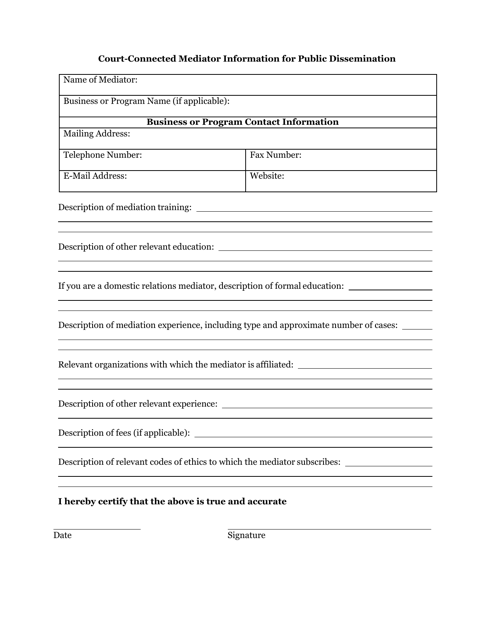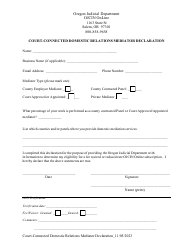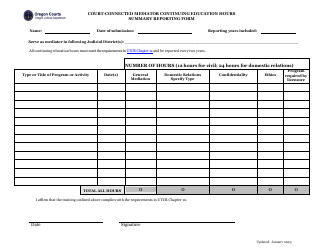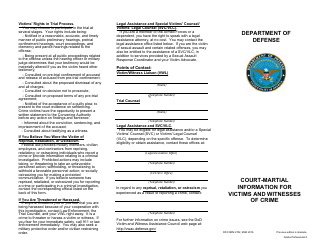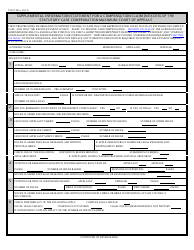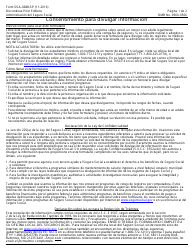Court-Connected Mediator Information for Public Dissemination - Oregon
Court-Connected Mediator Information for Public Dissemination is a legal document that was released by the Oregon Judicial Department - a government authority operating within Oregon.
FAQ
Q: What is a court-connected mediator?
A: A court-connected mediator is a neutral third party who helps people resolve their disputes outside of court.
Q: Why would I need a mediator?
A: You may need a mediator if you have a dispute with another party and want to find a peaceful resolution without going to court.
Q: How much does mediation cost?
A: The cost of mediation can vary depending on the mediator and the specific case. It is best to contact the mediator directly for cost information.
Q: What types of cases can a court-connected mediator help with?
A: A court-connected mediator can help with a wide range of cases, including family law, landlord-tenant disputes, and small claims cases.
Q: Is mediation binding?
A: Mediation is not binding, meaning that the parties are not required to reach an agreement. However, if an agreement is reached, it can be legally binding if the parties choose to make it so.
Q: What happens if we can't reach an agreement in mediation?
A: If the parties are unable to reach an agreement in mediation, they may choose to pursue other options, such as going to court or seeking alternative dispute resolution methods.
Q: Is mediation confidential?
A: Yes, mediation is confidential. This means that what is discussed during the mediation process cannot be used as evidence in court.
Q: Can I bring an attorney to mediation?
A: Yes, you can bring an attorney to mediation if you choose. However, it is not required and many parties choose to participate in mediation without legal representation.
Q: Who pays for the mediator?
A: The parties involved in mediation typically share the cost of the mediator, unless otherwise specified or ordered by the court.
Form Details:
- The latest edition currently provided by the Oregon Judicial Department;
- Ready to use and print;
- Easy to customize;
- Compatible with most PDF-viewing applications;
- Fill out the form in our online filing application.
Download a printable version of the form by clicking the link below or browse more documents and templates provided by the Oregon Judicial Department.
